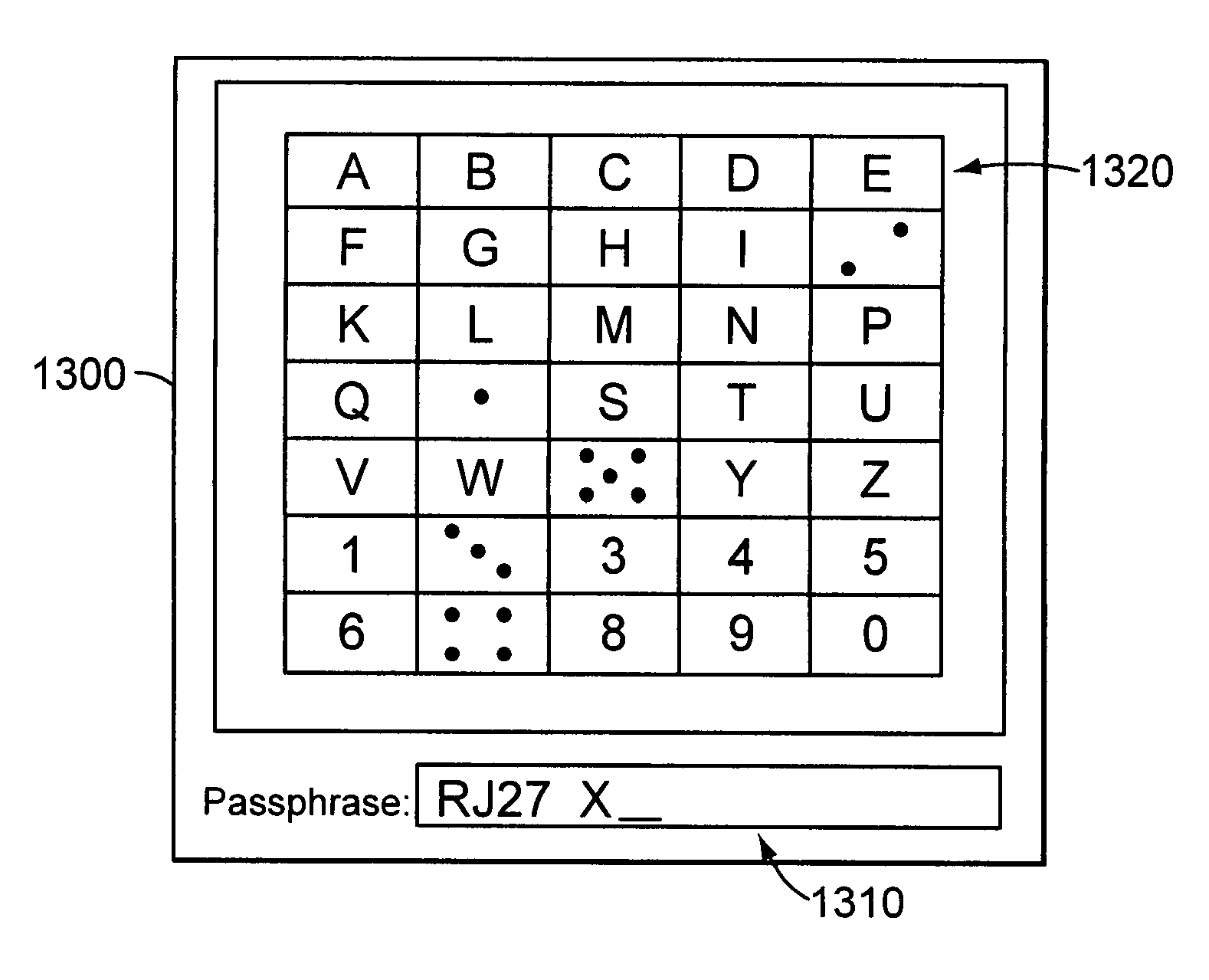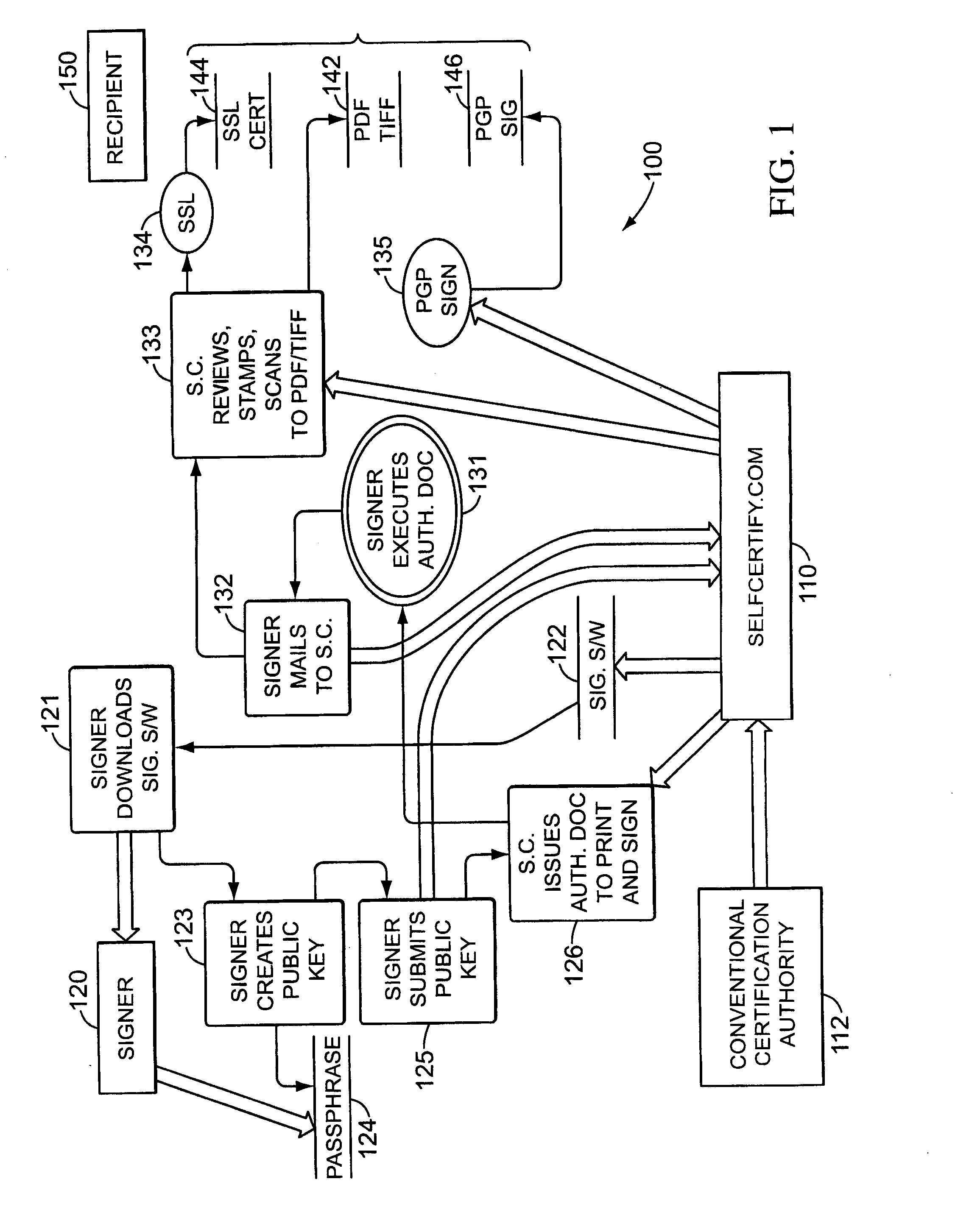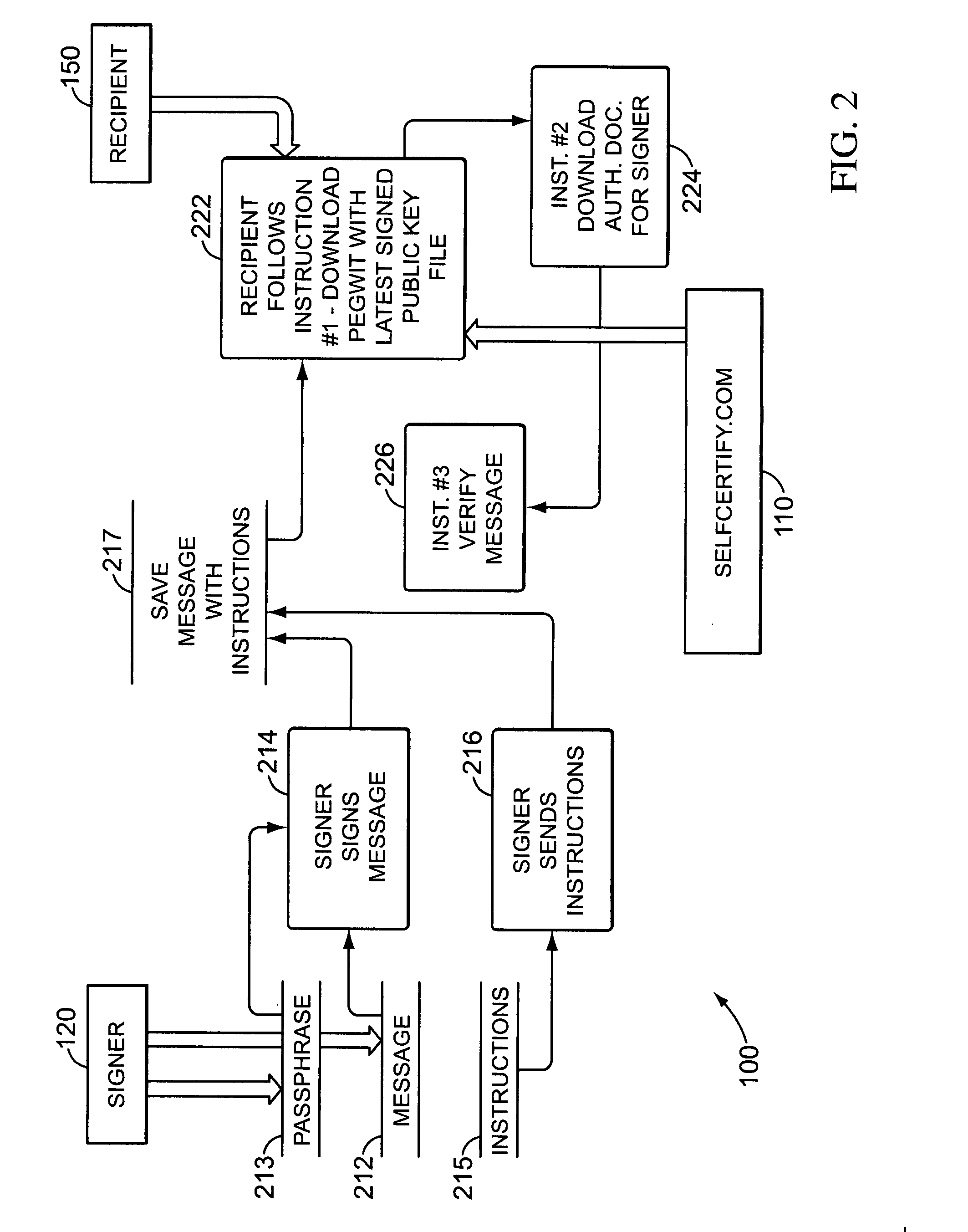Encryption and authentication systems and methods
a technology applied in the field of encryption and authentication system and method, can solve the problems of “computationally infeasible”, derive the private key, and digital signature to no longer match the documen
- Summary
- Abstract
- Description
- Claims
- Application Information
AI Technical Summary
Benefits of technology
Problems solved by technology
Method used
Image
Examples
Embodiment Construction
class="d_n">[0038] The “Covenant Trust” authentication system employs an authorization and certification instrument (“ACI”) that, with a holographic (ink) signature, legally binds the signer to digital signatures uniquely corresponding to (and thus created with) a positively identified public key.
[0039] An example is shown in Appendix A of the application as originally filed. It includes the following text superimposed on vertically-oriented background digits “FC1D 9CBF B80D E940 6250 7CAD 070F 90BA CDA2 44DO” in various fonts and sizes:
[0040]“Using a PGP-compatible cryptosystem, I have created a ‘DH / DSS’ private key (‘the Private Key’) and public key (‘the Public Key’). The Public Key uniquely corresponds to a 160-bit ‘fingerprint’ (SHA-1 hash). The fingerprint is printed below as ten groups of four hexadecimal digits, and in various outline fonts throughout the background of this entire paper and in all its signature fields: FC1D 9CBF B80D E940 6250 7CAD 070F 90BA CDA2 44D0.
[004...
PUM
 Login to View More
Login to View More Abstract
Description
Claims
Application Information
 Login to View More
Login to View More - R&D
- Intellectual Property
- Life Sciences
- Materials
- Tech Scout
- Unparalleled Data Quality
- Higher Quality Content
- 60% Fewer Hallucinations
Browse by: Latest US Patents, China's latest patents, Technical Efficacy Thesaurus, Application Domain, Technology Topic, Popular Technical Reports.
© 2025 PatSnap. All rights reserved.Legal|Privacy policy|Modern Slavery Act Transparency Statement|Sitemap|About US| Contact US: help@patsnap.com



